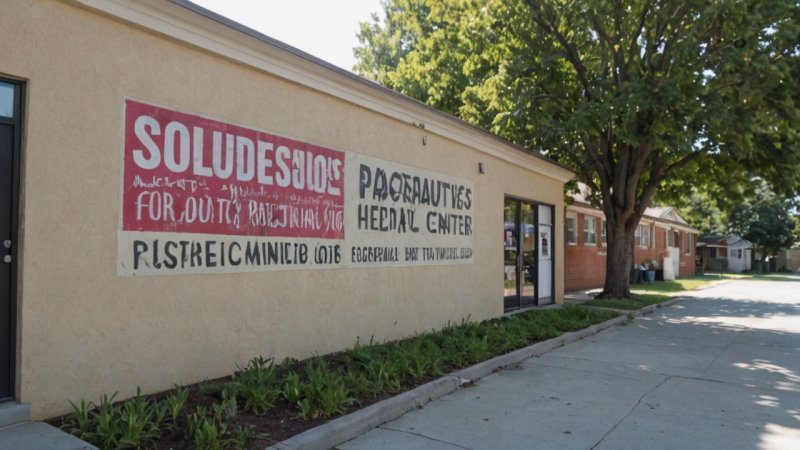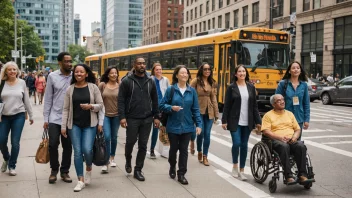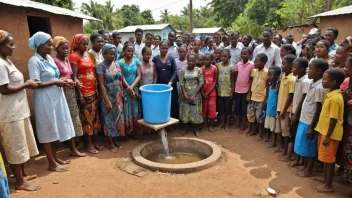In the intricate web of factors influencing poverty-stricken communities, mental health often emerges as a critical yet overlooked component. The intersection of mental health and poverty is a complex relationship where each affects the other, creating a cycle that is difficult to escape. Understanding how mental health resources can play a pivotal role in alleviating poverty is essential for fostering healthier, more resilient communities. This article delves into the multifaceted impact of mental health resources on poverty-stricken areas, exploring the challenges faced, the initiatives in place, and the ways individuals and organizations can contribute to meaningful change.
Understanding the Relationship Between Mental Health and Poverty
Poverty is not just a lack of financial resources; it encompasses a broader spectrum of deprivation, including limited access to education, healthcare, and social services. Mental health issues, such as depression, anxiety, and trauma, are prevalent in impoverished communities and can exacerbate the challenges of poverty. Conversely, the stress and instability associated with living in poverty can lead to or worsen mental health conditions.
Research indicates that individuals living in poverty are more likely to experience mental health issues due to various factors, including:
- Chronic Stress: Financial instability, job insecurity, and unsafe living conditions contribute to chronic stress, which can adversely affect mental health.
- Lack of Access to Care: Many impoverished communities lack adequate mental health resources, leading to untreated mental health issues.
- Social Isolation: Poverty can lead to social exclusion, increasing feelings of loneliness and despair.
- Trauma: Many individuals in poverty-stricken areas have experienced trauma, which can have long-lasting effects on mental health.
The Importance of Mental Health Resources
Addressing mental health in poverty-stricken communities is crucial for several reasons:
- Improved Quality of Life: Access to mental health resources can significantly enhance the overall quality of life for individuals and families.
- Increased Economic Stability: Mental health support can lead to better employment outcomes, reducing reliance on social services.
- Community Resilience: Communities that prioritize mental health resources tend to be more resilient, able to cope with challenges and adversity.
- Breaking the Cycle of Poverty: By addressing mental health, we can help break the cycle of poverty, enabling individuals to pursue opportunities for education and employment.
Successful Initiatives and Programs
Several initiatives and programs have successfully integrated mental health resources into poverty alleviation efforts. Here are a few notable examples:
1. Community Mental Health Centers
Community mental health centers provide accessible mental health services to low-income individuals. These centers often offer a range of services, including counseling, medication management, and crisis intervention. By being located within the communities they serve, these centers reduce barriers to access and foster a supportive environment.
2. School-Based Mental Health Programs
Schools in impoverished areas are increasingly recognizing the importance of mental health support for students. School-based mental health programs provide counseling services, mental health education, and support for students dealing with trauma or stress. These programs not only improve students' mental well-being but also enhance their academic performance.
3. Peer Support Networks
Peer support networks leverage the experiences of individuals who have faced mental health challenges themselves. These networks provide a sense of community and understanding, helping participants feel less isolated. Programs like these have shown effectiveness in reducing stigma and encouraging individuals to seek help.
4. Telehealth Services
Telehealth has emerged as a vital resource, especially in rural or underserved areas. By providing remote access to mental health professionals, telehealth services break down geographical barriers and increase access to care for those in poverty-stricken communities.
How Individuals Can Get Involved
While large-scale initiatives are essential, individual actions can also make a significant impact on mental health in poverty-stricken communities. Here are some ways you can contribute:
- Volunteer: Offer your time to local mental health organizations or community centers. Volunteer roles can vary from administrative support to direct service roles, such as mentoring or counseling.
- Advocate: Raise awareness about the importance of mental health resources in poverty alleviation. Use your voice to advocate for policies that support mental health funding and access.
- Educate: Share information about mental health and available resources within your community. Providing education can help reduce stigma and encourage individuals to seek help.
- Support Local Initiatives: Participate in or support local events that promote mental health awareness and services, such as workshops, seminars, or mental health fairs.
Challenges and Barriers to Accessing Mental Health Resources
Despite the importance of mental health resources, several challenges persist in poverty-stricken communities:
- Stigma: Mental health stigma can prevent individuals from seeking help, contributing to a cycle of silence and suffering.
- Financial Constraints: Even with available resources, some individuals may still face financial barriers, such as transportation costs or lost wages during treatment.
- Workforce Shortages: Many impoverished areas lack sufficient mental health professionals, leading to long wait times and limited access to care.
- Cultural Barriers: Cultural beliefs and norms can influence how mental health is perceived and addressed, potentially hindering individuals from seeking help.
Conclusion
The relationship between mental health and poverty is undeniably complex, yet addressing mental health resources in impoverished communities is a critical step towards poverty alleviation. By understanding the challenges, supporting existing initiatives, and taking action on an individual level, we can foster healthier, more resilient communities. The journey to breaking the cycle of poverty requires a multifaceted approach that includes mental health support as a fundamental component. Together, we can make a difference and empower those in need to reclaim their lives and futures.






